Agency Marketing Digital

Agency Marketing Digital
Agency Marketing Digital, In today’s fast-paced, technology-driven world, digital marketing agencies play a crucial role in helping businesses achieve their goals. Whether you’re a small business looking to establish an online presence or a large corporation aiming to enhance your digital footprint, the right digital marketing strategies can make all the difference. In this comprehensive guide, we’ll dive deep into agency marketing digital—what it is, why it matters, and how your business can leverage it effectively.
What is Digital Marketing for Agencies?
Digital marketing refers to the promotion of products or services using digital channels such as search engines, social media, email, and websites. When agencies specialize in this field, they focus on creating and executing strategies to help their clients grow their online presence, generate leads, and increase sales. These agencies offer a range of services, including SEO, content marketing, PPC advertising, social media management, email marketing, and more.
Agency Marketing Digital
Why Choose a Digital Marketing Agency?
Hiring a digital marketing agency can provide businesses with several advantages:
Expertise
Agencies have professionals with specialized knowledge in various digital marketing disciplines. This expertise ensures that your campaigns are not only well-planned but also executed with precision, maximizing results.
Efficiency
Digital marketing agencies can quickly implement strategies that would take in-house teams much longer to develop. Their streamlined processes and experience enable them to produce high-quality work within tight deadlines.
Cost-Effectiveness
Outsourcing to an agency can often be more economical than maintaining an in-house marketing team. Agencies provide access to a wide range of services without the overhead costs of hiring full-time staff.
Access to Tools and Resources
Agencies use advanced tools for analytics, keyword research, campaign management, and performance tracking. These tools, which might be expensive for individual businesses, are crucial for optimizing marketing efforts.
Scalability
Digital marketing agencies can adapt their strategies to meet the growing needs of your business. Whether you’re launching a new product or entering a new market, they can scale campaigns to support your objectives effectively.
Agency Marketing Digital
Key Services Offered by Digital Marketing Agencies
To truly understand agency marketing digital, it’s important to explore the primary services offered by these agencies. These services are designed to help businesses achieve their goals by leveraging a combination of strategies tailored to the digital landscape.
1. Search Engine Optimization (SEO)
SEO is a cornerstone of digital marketing, focusing on improving a website’s visibility in search engine results. The primary goal of SEO is to drive organic traffic to a website by ensuring it ranks high for relevant keywords. Key components include:
- Keyword Research: Identifying the most relevant and valuable keywords that potential customers use.
- On-Page Optimization: Enhancing website elements such as meta tags, headers, and content to align with target keywords.
- Technical SEO: Improving website infrastructure, including mobile-friendliness, site speed, and crawlability.
- Link Building: Acquiring high-quality backlinks from reputable websites to boost authority.
- Local SEO: Optimizing for location-specific searches, crucial for businesses targeting local markets.
Effective SEO ensures that your website attracts the right audience, driving increased traffic and engagement over time.
2. Pay-Per-Click (PPC) Advertising
PPC campaigns, such as Google Ads, allow businesses to display their ads prominently on search engine results pages or other digital platforms. Unlike organic strategies, PPC provides immediate visibility. Agencies manage:
- Keyword Bidding Strategies: Ensuring optimal ad placement while staying within budget.
- Ad Creation and Testing: Designing compelling ad copy and visuals to capture attention.
- Campaign Monitoring and Optimization: Analyzing performance and making adjustments to improve ROI.
PPC is ideal for businesses seeking quick results and measurable returns. It’s especially effective for time-sensitive promotions or competitive industries.
3. Content Marketing
Content marketing is the backbone of a successful digital strategy. It focuses on creating and distributing valuable content that informs, entertains, or persuades the target audience. Agencies excel in producing:
- Blog Posts: Informative articles that address audience pain points and boost SEO rankings.
- Infographics: Visually appealing graphics that simplify complex information.
- E-Books: In-depth resources that establish authority and generate leads.
- Videos: Engaging visual content for platforms like YouTube and social media.
The goal of content marketing is to build trust, engage audiences, and drive conversions through consistent, high-quality content.
4. Social Media Marketing
Social media platforms are indispensable for brand awareness and customer engagement. A robust social media strategy can help businesses connect with their audience and foster loyalty. Agencies typically handle:
- Profile Creation and Optimization: Setting up and maintaining professional, branded profiles.
- Content Scheduling: Planning and posting regular updates to maintain visibility.
- Community Management: Engaging with followers, responding to comments, and fostering a sense of community.
- Paid Social Advertising: Running targeted ad campaigns to expand reach and drive results.
Each platform—from Facebook to Instagram to LinkedIn—requires a unique approach, and agencies tailor strategies to maximize impact on each channel.
5. Email Marketing
Email marketing remains one of the most cost-effective digital marketing strategies. It’s particularly effective for nurturing leads and retaining customers. Agencies manage:
- Email Design: Crafting visually appealing and mobile-friendly emails.
- List Segmentation: Dividing email lists based on demographics, behavior, or preferences to send targeted messages.
- Performance Tracking: Measuring open rates, click-through rates, and conversions to optimize future campaigns.
By delivering personalized and relevant content, email marketing helps build relationships and drive repeat business.
6. Analytics and Reporting
Understanding the success of digital campaigns is vital for making data-driven decisions. Agencies provide comprehensive analytics and reporting services, including:
- Google Analytics: Tracking website traffic, user behavior, and conversion paths.
- Conversion Tracking: Measuring the effectiveness of campaigns in driving desired actions, such as purchases or sign-ups.
- ROI Analysis: Determining the financial impact of marketing efforts to ensure profitability.
With detailed insights, businesses can refine strategies and allocate resources more effectively.
7. Web Design and Development
A website is often the first interaction a potential customer has with a brand. Agencies ensure that websites are:
- Responsive: Optimized for all devices, including desktops, tablets, and smartphones.
- User-Friendly: Designed with intuitive navigation and clear calls-to-action.
- SEO-Optimized: Built to rank well on search engines.
- Fast-Loading: Ensuring minimal loading times to improve user experience and reduce bounce rates.
A well-designed website serves as a powerful marketing tool, enhancing credibility and driving conversions.
8. Influencer Marketing
Leveraging influencers—individuals with a substantial following on social media—can amplify a brand’s reach. Agencies manage:
- Influencer Identification: Finding influencers whose audience aligns with the brand.
- Campaign Planning: Developing strategies to ensure authentic and impactful collaborations.
- Performance Tracking: Measuring engagement and conversions driven by influencer campaigns.
Influencer marketing adds a layer of authenticity, as recommendations from trusted figures often resonate more with audiences.
9. Video Marketing
Video content continues to dominate online platforms. Agencies help businesses create:
- Product Demonstrations: Showcasing products in action.
- Testimonials: Featuring satisfied customers to build trust.
- Live Streams: Engaging with audiences in real-time on platforms like Instagram and Facebook.
With video content, brands can convey messages more effectively, capturing attention and evoking emotion.
10. Online Reputation Management (ORM)
A brand’s online reputation can significantly impact its success. Agencies offer ORM services to:
- Monitor Mentions: Keeping track of brand mentions across the web.
- Manage Reviews: Responding to customer reviews to maintain a positive image.
- Crisis Management: Addressing negative publicity promptly and effectively.
By maintaining a strong reputation, businesses can build trust and attract more customers.
11. Conversion Rate Optimization (CRO)
CRO focuses on enhancing a website’s ability to convert visitors into customers. Agencies use techniques such as:
- A/B Testing: Comparing different versions of web pages to determine what works best.
- User Behavior Analysis: Studying how visitors interact with a site.
- Optimized Landing Pages: Crafting pages designed to drive specific actions.
Improving conversion rates maximizes the ROI of digital marketing efforts.
Agency Marketing Digital
Steps to Choose the Right Digital Marketing Agency
With countless options available, selecting the right agency can be daunting. Here’s how to make an informed decision:
1. Define Your Goals
Determine what you want to achieve with your digital marketing efforts. Are you aiming for increased website traffic, higher conversion rates, or improved brand awareness? Having clear objectives will help you find an agency that aligns with your vision and understands your specific needs.
2. Check Their Expertise
Examine the agency’s portfolio, case studies, and the range of services they offer. Look for agencies with proven expertise in the areas you need, such as SEO, PPC, or content marketing. An experienced agency will have the skills and knowledge to deliver effective strategies tailored to your business.
3. Consider Industry Experience
If possible, choose an agency that has experience in your industry. Familiarity with your market’s nuances and audience behaviors can lead to more effective campaigns. Industry-specific insights enable the agency to craft strategies that resonate with your target audience.
4. Assess Communication
Effective communication is essential for a successful partnership. During your initial interactions, observe how responsive and transparent the agency is. Do they provide regular updates? Are they open to discussing ideas and addressing concerns? Clear and consistent communication builds trust and ensures smoother collaboration.
5. Review Testimonials and Reviews
Feedback from previous clients can provide valuable insights into the agency’s performance and reliability. Check for testimonials on the agency’s website and look for independent reviews on platforms like Google or Clutch. Positive reviews and case studies can help you gauge the agency’s credibility and track record.
6. Evaluate Their Approach to Strategy
Ask the agency about their approach to developing digital marketing strategies. A good agency will start with an in-depth analysis of your business goals, audience, and competitors. They should present a customized plan rather than a one-size-fits-all solution, ensuring their strategies align with your unique requirements.
7. Consider Pricing and ROI
While cost shouldn’t be the sole factor, it’s important to understand the agency’s pricing structure and what you’ll receive in return. Compare proposals from multiple agencies to find a balance between affordability and value. Focus on potential ROI to ensure the investment will pay off in the long run.
Agency Marketing Digital
Strategies for Effective Digital Marketing
A digital marketing agency must implement proven strategies to deliver results. Here are some best practices:
1. Understand the Target Audience
Creating detailed buyer personas helps tailor campaigns to your ideal customers. Consider demographics, preferences, and pain points. By identifying the specific needs of your audience, you can create highly targeted and relevant marketing messages that resonate with potential customers.
2. Leverage Data-Driven Insights
Data plays a pivotal role in digital marketing. Use advanced analytics tools to track user behavior, measure campaign performance, and calculate ROI. Data-driven insights help refine strategies, identify what works, and eliminate underperforming tactics, ensuring continuous improvement.
3. Focus on Mobile Optimization
With the majority of online users accessing the internet via mobile devices, mobile optimization is non-negotiable. Ensure that your website is responsive, loading quickly, and providing an excellent user experience across all screen sizes. Mobile-friendly ads and content also perform better in today’s mobile-first world.
4. Utilize Multi-Channel Marketing
Adopt a holistic approach by integrating various digital channels such as SEO, social media, email, and PPC. Multi-channel marketing ensures consistent messaging and allows you to reach your audience wherever they are, maximizing engagement and conversions.
5. Create Engaging Content
Content is the foundation of digital marketing. High-quality, engaging content—whether in the form of blog posts, videos, or social media updates—captures attention and builds trust. Consistently delivering value to your audience helps establish your brand as an authority in your industry.
6. Emphasize Personalization
Today’s consumers expect personalized experiences. Use data to tailor messages, offers, and campaigns to individual preferences and behaviors. Personalized emails, product recommendations, and retargeting ads can significantly boost engagement and conversion rates.
7. Stay Updated on Trends
The digital marketing landscape is constantly evolving. Stay ahead by keeping up with emerging trends such as AI, voice search, video marketing, and augmented reality. Adapting to these trends ensures your strategies remain effective and competitive.
Agency Marketing Digital
Challenges Faced by Digital Marketing Agencies
While digital marketing offers immense opportunities, agencies often encounter challenges that test their resilience and adaptability. Let’s explore some of the most pressing issues digital marketing agencies face and how they can navigate these obstacles effectively.
1. High Competition
The digital marketing industry is saturated with countless agencies vying for the same clients. This intense competition makes it difficult to stand out. Agencies need to craft a unique value proposition that differentiates them from others. Exceptional results, innovative strategies, and strong client relationships are essential for maintaining a competitive edge. Building a reputation for expertise in specific niches or industries can also help agencies attract and retain clients.
2. Changing Algorithms
Search engines and social media platforms frequently update their algorithms, significantly impacting campaign performance. For example, Google’s algorithm updates can alter SEO rankings, while changes to social media algorithms can reduce organic reach. Agencies must stay informed about these changes and adjust their strategies accordingly. This requires continuous learning, flexibility, and a proactive approach to ensure campaigns remain effective and compliant with the latest guidelines.
3. Client Expectations
Clients often have high and diverse expectations, ranging from immediate results to long-term growth. Managing these expectations while delivering measurable outcomes is a significant challenge. Clear and consistent communication is key to addressing this issue. Agencies should establish realistic goals, provide transparent progress updates, and educate clients about the complexities of digital marketing. Building trust and setting achievable benchmarks can prevent misunderstandings and foster long-term partnerships.
4. Resource Allocation
Balancing time and resources across multiple campaigns and clients is another major hurdle. Agencies often juggle tight deadlines, limited budgets, and a variety of client needs. Effective resource allocation requires careful planning and prioritization. Agencies should invest in project management tools, streamline workflows, and delegate tasks efficiently to ensure optimal use of time and resources. Training team members to handle diverse responsibilities can also enhance overall productivity.
5. Keeping Up with Trends and Technology
The digital marketing landscape evolves rapidly, with new trends and technologies emerging constantly. Staying ahead requires agencies to invest in ongoing education and training. Tools like artificial intelligence, machine learning, and advanced analytics are becoming integral to modern marketing strategies. Agencies must adopt these innovations to remain competitive and deliver cutting-edge solutions.
6. Measuring ROI and Justifying Budgets
Clients increasingly demand proof of the value digital marketing brings to their business. Demonstrating return on investment (ROI) can be challenging, especially for strategies that yield long-term benefits like SEO and content marketing. Agencies need robust analytics tools to track performance metrics and showcase the impact of their efforts. Clear reporting and detailed insights help justify budgets and build client confidence.
7. Talent Retention and Recruitment
Attracting and retaining top talent is critical for maintaining a competitive advantage. However, the demand for skilled digital marketers often exceeds supply. Agencies must create a positive work environment, offer competitive compensation, and provide opportunities for professional growth to retain their best employees. Encouraging creativity and fostering a collaborative culture can also boost team morale and productivity.
Agency Marketing Digital
Future of Agency Marketing Digital
The future of digital marketing looks promising, with several advancements on the horizon:
Artificial Intelligence (AI)
AI-powered tools are revolutionizing digital marketing by enhancing personalization, improving customer targeting, and automating repetitive tasks. Chatbots, predictive analytics, and AI-driven content creation are just a few examples of how AI is shaping the industry.
Voice Search Optimization
As the use of smart speakers and voice assistants grows, optimizing for voice search is becoming increasingly important. Agencies will focus on creating conversational content and optimizing for long-tail keywords to capture voice search traffic.
Augmented Reality (AR)
AR is transforming how consumers interact with brands, particularly in e-commerce. Virtual try-ons, immersive experiences, and interactive ads are just a few ways AR is enhancing customer engagement.
Sustainability Marketing
With growing awareness of environmental issues, consumers are increasingly favoring brands that demonstrate social responsibility. Agencies will emphasize sustainability marketing, helping brands showcase their eco-friendly initiatives and connect with conscious consumers.
Agency Marketing Digital
Conclusion
Agency marketing digital is an indispensable tool for businesses aiming to thrive in the digital age. By leveraging the expertise of a professional agency, companies can unlock their full potential and achieve sustainable growth. Whether it’s through SEO, content creation, social media, or advanced analytics, digital marketing agencies provide the skills and strategies needed to navigate the ever-changing online landscape.
If you’re ready to take your business to the next level, partnering with an experienced digital marketing agency like XIT Solution Team is the first step toward success. Our team of experts is dedicated to helping you achieve your goals with customized strategies tailored to your unique needs.
Let’s work together to make your digital dreams a reality!







